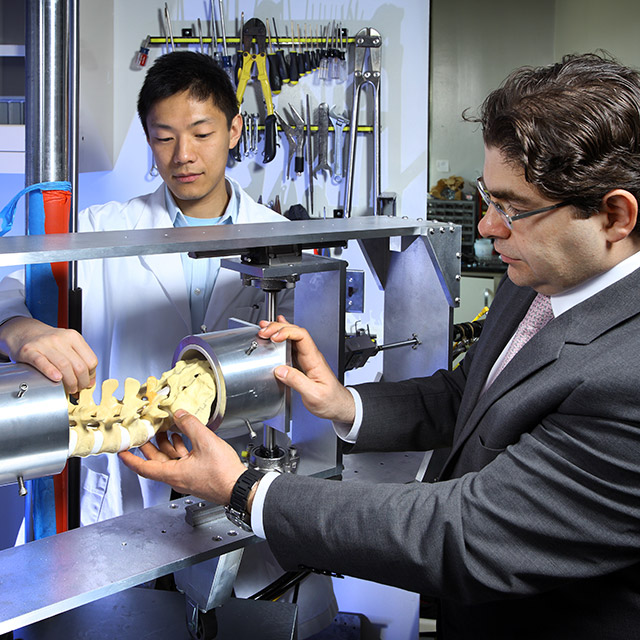Conditions We Treat
The Johns Hopkins Neurosurgical Spine Center brings together the best minds in diagnosis and management of spine disorders, including:
-
Degenerative Spine Conditions
Degenerative disc disease, disc herniations, spondylosis, spinal stenosis, spinal arthritis, radiculopathy, myelopathy, spondylolisthesis and related conditions
-
Spinal Deformities
Scoliosis, kyphosis, Scheuermann’s disease, and other congenital and acquired deformities affecting the spine
-
Spinal Tumors
Primary and metastatic tumors of the spinal cord, meninges and vertebrae, including chordomas, chondrosarcomas and intramedullary spinal cord tumors
Why Choose Johns Hopkins for Spine Surgery

- Multidisciplinary approach: When it comes to treatment of back and spine conditions, our team of neurosurgeons and neurologists works closely with specialists in pain management, orthopaedic surgery, physical medicine and rehabilitation, and other fields to offer you a comprehensive treatment plan.
- Research innovation: With access to the vast research resources at Johns Hopkins, our team constantly works to understand spine conditions better, and to improve treatment options and identify new ones. We have developed such approaches as sacral-alar-iliac fusion (a technique for patients requiring lumbosacral fusion) and precise hardware placement using a surgical robot.
- The latest technology: By using new technologies, such as intraoperative CT scan and advanced image guidance during surgery, we can safely resect spinal tumors previously believed to be inoperable.
Minimally Invasive Surgery
“Minimally invasive” is a term that describes all techniques designed to minimize blood loss and healthy tissue damage during a surgery. Our surgeons routinely use these techniques, including robotic assistance, and develop new methods and technologies to help you get back to your life as soon as possible.
Learn more

